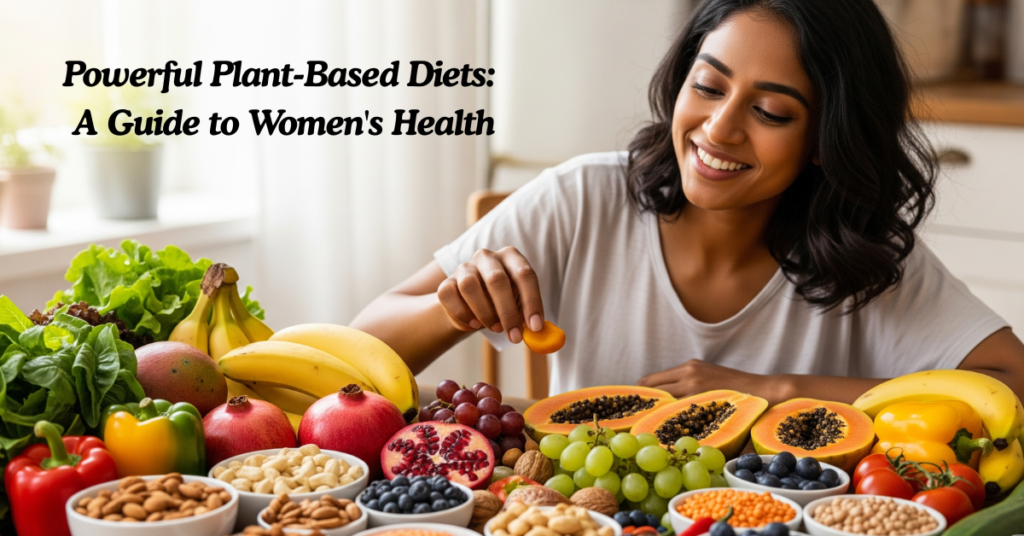A plant-based diet can be powerful for women’s health, providing benefits like strong bones, hormonal balance, and helping to control weight, hypertension, hyperlipidemia, and diabetes.
Benefits for women:
Hormonal balance: Plant-based foods like broccoli, kale, and cauliflower contain sulforaphane, which helps in estrogen detoxification, reduces cortisol levels, and lessens inflammation.
Bone health: Foods like leafy vegetables, almonds, and tofu are excellent sources of calcium and magnesium.
Reduced cardiovascular disease: Plant-based diets are low in saturated fat and high in fiber, which helps maintain healthy cholesterol levels. Nuts and seeds can increase good cholesterol (HDL) levels.
Reduced cancer risk: The American Institute for Cancer Research promotes a plant-based diet, recommending that two-thirds of your plate should contain plant-based foods.
Vegan diets can be associated with deficiencies in Vitamin B12, Vitamin D, iron, omega-3 fatty acids, and zinc. These deficiencies can lead to anemia, osteoporosis, osteoarthritis, and fatigue.
Sources of Vitamin B12: Vitamin B12-fortified cereals, soy milk, and almond milk.
Sources of Vitamin D: Milk fortified with Vitamin D, soy milk, almond milk, tofu, mushrooms, and yogurt fortified with Vitamin D.
Sources of Iron: Green leafy vegetables, dates, raisins, almonds, walnuts, chickpeas, and tofu. Consuming foods rich in Vitamin C like amla, guava, and oranges can improve iron absorption.
Omega-3 fatty acids sources: Flaxseeds, chia seeds, and walnuts are good sources.
Also Read: Menopause and Heart Health: Why Women’s Risk Rises and How to Stay Healthy
To avoid many health issues, your plate should be rich in legumes and pulses, a rainbow of seasonal and locally available fruits and vegetables, milk sources, nuts, and seeds.
Consulting with a registered dietitian can be helpful for personalized advice.



